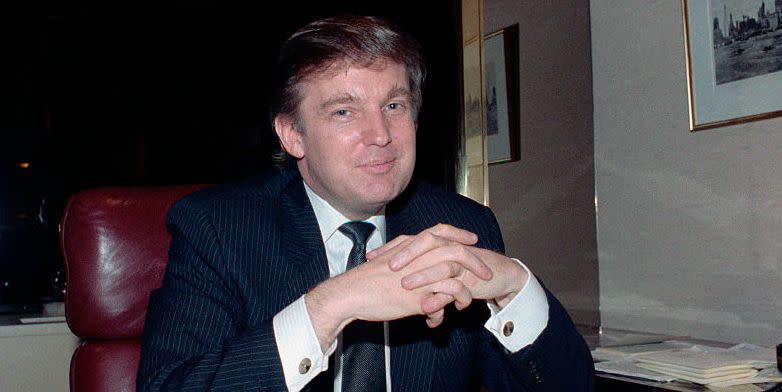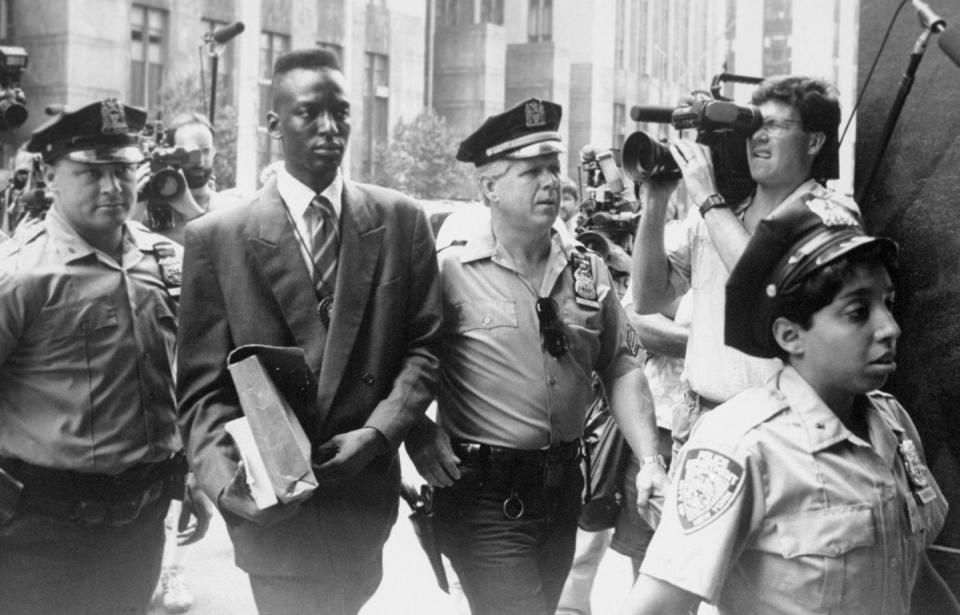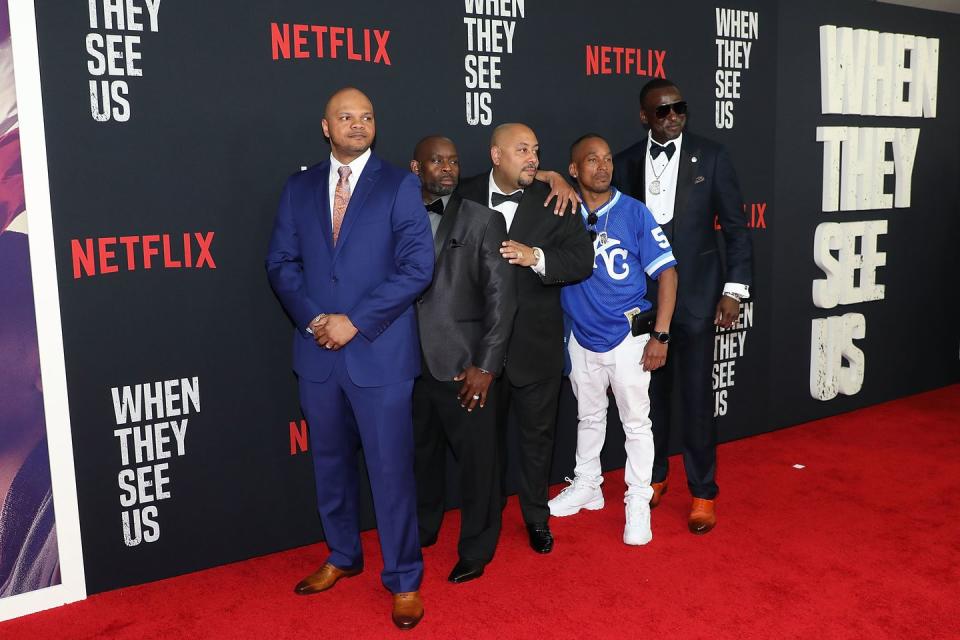Breaking Down Donald Trump's Deranged Involvement in the Central Park Five Case

In 1989, the Central Park Five case shook New York City. Kevin Richardson, 15, Raymond Santana, 14, Antron McCray, 15, Yusef Salaam, 15, and Korey Wise, 16, falsey confessed to the brutal rape of a Trisha Meili, a 28-year-old investment banker. Hundreds of stories were written about the case-the New York City tabloids, in particular, covered it relentlessly. The first New York Daily News headline read: "Wolf Pack's Prey: Female Jogger Near Death After Savage Attack From Roving Gang."
Though the teenagers falsely confessed after hours of deceptive police interrogation, their DNA wasn't found at the crime scene, and their descriptions of the jogger and injuries didn't match the evidence. They were all convicted, serving sentences ranging from six to 13 years.
Thirteen years later, DNA evidence proved they didn't do it. And the story made headlines again.
Throughout every development of the case, New York City real estate developer-turned-president Donald Trump inserted himself into the public narrative. Now, the story serves as the basis of Ava DuVernay’s upcoming Netflix mini-series, When They See Us, which premieres May 31.
Here’s how Trump has exploited and threatened five innocent teenage boys for decades.
How Trump responded to the attack.
In 1989, crime was high in the city and denizens were fed up. And sociologically, this crime was particularly resonant. Meili was a young, Yale-educated white banker, presumably attacked by a group of black and Latino youths. The case tapped into America’s centuries-old racist fear of sexual violence by non-white men against white women.

As Meili began to regain consciousness ten days after the attack, Donald Trump, then a local real estate mogul and best-selling non-author of the Art of the Deal, paid $85,00 to take out full-page ads in four of the city’s most popular papers. The ads declared in large font, “BRING BACK THE DEATH PENALTY. BRING BACK OUR POLICE.”
In the short, first-person article printed in the ad, Trump railed against crime he viewed as being out of control. "At what point did we cross the line from the fine and noble pursuit of genuine civil liberties to the reckless an dangerously permissive atmosphere which allows criminals of every age to beat and rape a helpless woman and then laugh at her family’s anguish?" Trump wrote. "I want to hate these murderers and I always will. I am not looking to psychoanalyze or understand them, I am looking to punish them … I no longer want to understand their anger. I want them to understand our anger. I want them to be afraid."
"When I first saw this ad, that Donald Trump made,” said Salaam in a 2016 interview with The Guardian. "I knew that this famous person calling for us to die was very serious.”
This is the full-page advertisement Donald Trump took out calling for the execution of the Central Park Five.
They were later exonerated by DNA evidence, although President Trump maintains that they are guilty. pic.twitter.com/vspZemnW93- Scott Bixby (@scottbix) February 10, 2018
In the wake of Trump’s ads, the lynch mob rhetoric escalated further. Pat Buchanan wrote that the eldest of the five, 16-year-old Wise, should be “hanged in Central Park,” while the other boys should be “stripped, horsewhipped, and sent to prison.”
The Five were eventually convicted of the crime and sentenced to prison terms. “[Trump] poisoned the minds of many people who lived in New York and who, rightfully, had a natural affinity for the victim,” one of their defense attorneys told The Guardian.
But Trump and the jury were wrong. In 2002, murderer and serial rapist Matias Reyes confessed he'd been the Central Park Jogger's attacker, and his confession was confirmed with DNA evidence. The Central Park Five were exonerated, and later settled a civil rights lawsuit against New York City for $40 million dollars.

How Trump responded to evidence that the men are innocent.
Not everyone was convinced of their innocence, including Trump. After the 2014 settlement, he wrote an op-ed for The New York Daily News. "My opinion on the settlement of the Central Park Jogger case is that it's a disgrace. A detective close to the case, and who has followed it since 1989, calls it 'the heist of the century,’" he wrote. "Settling doesn't mean innocence."
"Speak to the detectives on the case and try listening to the facts," Trump wrote. "These young men do not exactly have the pasts of angels."
The Central Park Five documentary was a one sided piece of garbage that didn't explain the.horrific crimes of these young men while in park
- Donald J. Trump (@realDonaldTrump) April 24, 2013
Has Trump ever acknowledged he was wrong?
Trump hadn’t changed his tune by his presidential run. "They admitted they were guilty," he told CNN in 2016. "The police doing the original investigation say they were guilty. The fact that that case was settled with so much evidence against them is outrageous."
In an appearance at the Town & Country Philanthropy Summit this week, the five men spoke about Trump alongside When They See Us director DuVernay. "I look at Donald Trump, and I understand him as a representation of a symptom of America,” said Salaam. "We were convicted because of the color of our skin. People thought the worst of us. They created superpredator laws because of what happened. And all of this because prominent New Yorkers-especially Donald Trump."

('You Might Also Like',)


